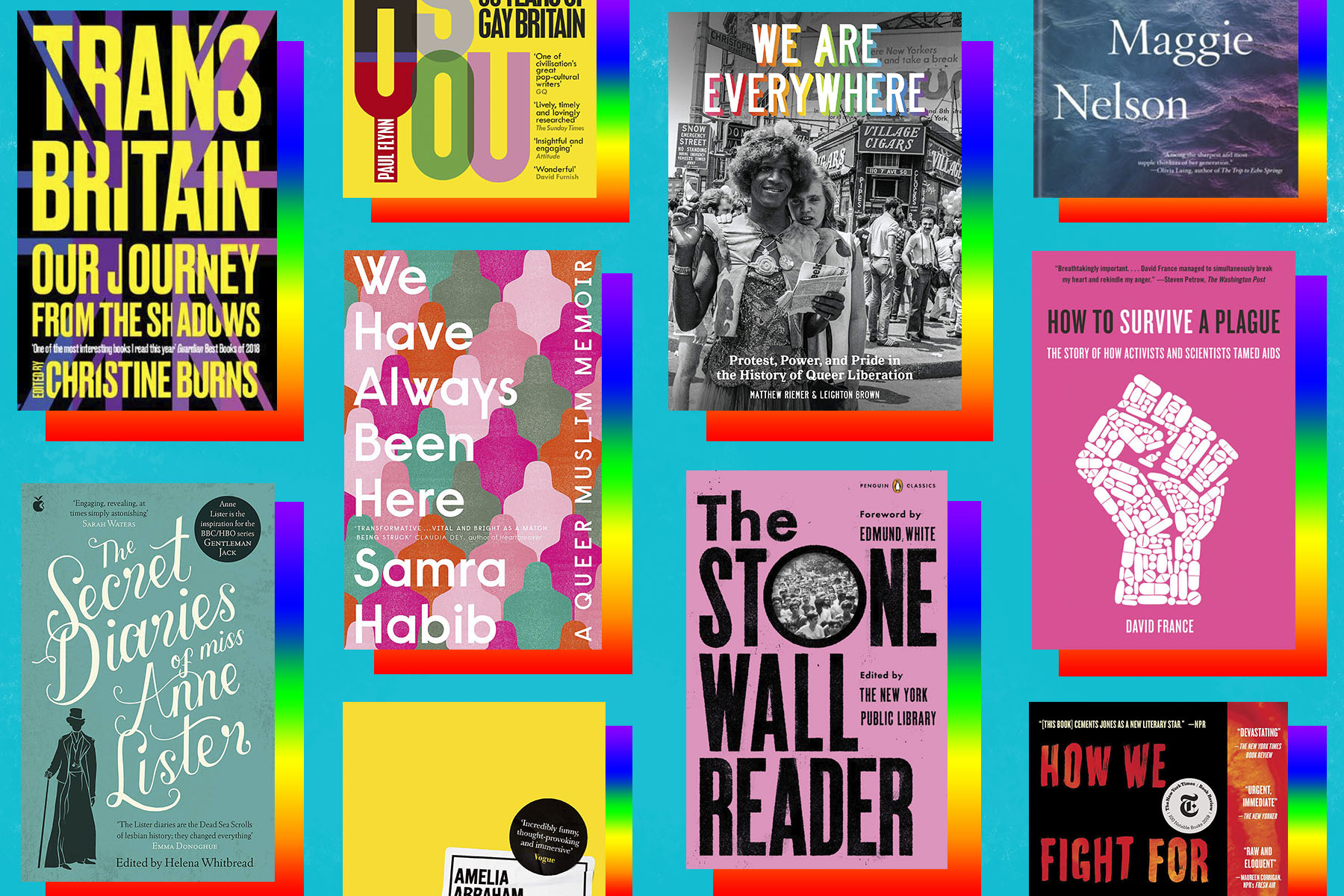10 essential non-fiction books to learn about LGBTQ history and culture

In the reality TV show RuPaul’s Drag Race, the act of deftly insulting your competitors is called "reading". And reading, as the catchphrase goes, is fundamental.
But reading is vital to the LGBTQ experience – and not just on reality television. Queer people have always told their stories as a way to render themselves visible; in doing so, they give hope to others that they may one day be safe to tell theirs.
These 10 non-fiction titles are a great way to begin to understand LGBTQ people’s experiences. The library, as RuPaul also says, is open.
We Are Everywhere: Protest, Power, and Pride in the History of Queer liberation by Matthew Riemer and Leighton Brown (2019)
An inclusive account of the fight for queer freedom and equality, We Are Everywhere is a beautifully designed photographic journey from queer activism’s roots in late 19th Century Europe, through the Stonewall riots and up to present day politics.
From the curators of popular Instagram account @lgbt_history, which champions unheard voices in queer narratives, We Are Everywhere offers an immersive history lesson direct from the diverse group of people who got us here.
The Argonauts by Maggie Nelson (2015)
The Argonauts is a love story, describing writer Maggie Nelson’s marriage to the artist Harry Dodge, who is fluidly gendered. But this short, captivating memoir is never just one thing, ranging widely and deeply on the meanings of pregnancy, family, sex and love. In doing so, Nelson opens the reader’s mind to possibilities beyond the binary and the magic that happens when you get there.
The Secret Diaries of Miss Anne Lister by Helena Whitbread (2010)
LGBTQ people are largely absent from the history books. So personal testimony such as that of 19th Century English landowner Anne Lister is a vital way to see that we have always existed.
Lister, known as "Gentleman Jack" by Halifax locals, kept diaries – written in code – which describe in detail her life as a woman who ‘could love, and only love the "fairer sex"'. Celebrated as "the first modern lesbian", on account of how she conducted her life in an era so radically different from now, Lister was an example of courage in action.
Queer Intentions – A (Personal) Journey Through LGBTQ+ Culture by Amelia Abraham (2019)
Journalist Amelia Abraham takes the temperature of contemporary queer culture, journeying from drag performances in LA to Turkish underground clubs in this insightful and wide-ranging discovery of LGBTQ life as it is lived. A vibrant, wide ranging exploration of what it means to be queer now, Queer Intentions also asks who is being left behind and where we go from here as a global community.
How to Survive a Plague – The story of how activists and scientists tamed AIDS by David France (2017)
David France’s insider account of the battle to stop the AIDS epidemic is the story of how – in the face of government and societal indifference – grassroots activists harnessed scientific research to save lives.
France’s devastating and heroic book is both a testament to the millions who lost their lives and to all who have survived because of the activists’ efforts. It is a story about community, and the individuals who put their lives on the line for it.
How We Fight for Our Lives by Saeed Jones (2020)
Queer coming-of-age memoirs shine light on the diversity of experience in the LGBTQ community. That we are not simply one thing is a cornerstone of Saeed Jones’ timely memoir about growing up gay and black and Southern, in Texas in the late 1990s.
"Being a black gay boy can get you killed," he writes, in this emotionally raw and intimate account of discovery and identity which happens at the intersection of sex, race and power.
We Have Always Been Here: A Queer Muslim Memoir by Samra Habib (2019)
The conflict between faith and sexuality is explored in journalist Samra Habib’s memoir of growing up queer in a Muslim household. Habib was raised in the Ahmadi Muslim community in Pakistan, which regularly faced with threats from Islamic extremists. When her family moved to Canada as refugees, she encountered new dangers from racism to poverty and familial pressure to conform. Harrowing yet hopeful, We Have Always Been Here is testimony to the power of speaking your truth, and the potential for reconciliation with family and faith.